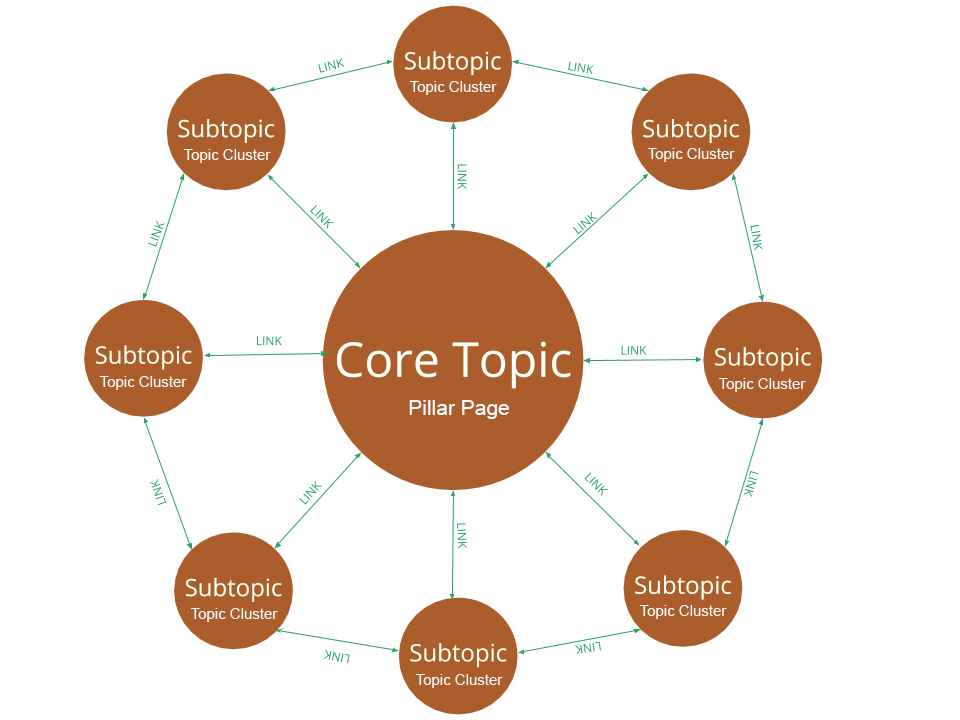Now more than ever, maximizing your blog posts for SEO is critical to your SEO success and growth of your business needs. You’re likely thinking that you simply don’t have enough time to write blog posts.
Ladybugz Interactive offers customized digital growth packages that are perfect for your digital marketing and SEO needs, and thankfully, maximizing your blog posts for SEO are one of our specialties.
Plan your Blog Post with Proper Keyword Research
Before diving into writing your blog post, it’s important to have a game plan in mind so you know how you can best maximize your blog post for SEO. Keyword research is key for the foundation of SEO (or at least part of the beginning steps of SEO).
Keyword research is used by SEO experts and content strategists/creators to find out what your consumers are interested in based on their search engine data.
There are plenty of keyword research tools out there – but which one do you choose? Depending on your budget, there are free and paid keyword research tools you can use to find your keyword strategy that works for your business; SEMRush, Moz, Ahrefs, SpyFu, and Google Keyword Planner are just a few examples.
You can use these keywords for topic clusters to create content pieces, not just for blog posts, but also for your website as a whole. This is important for SEO experts or content writers who depend on organic SEO (not paid ads) to drive traffic to their websites and provide lead generation.

Structure Your Blog Post for Maximizing your Blog Posts for SEO
Just like in high school where you learned how to write an outline for research papers and essays, the same idea applies to your blog posts. You won’t so much be graded on it, but keep in mind that it does affect your SEO and lead generation.
A blog post is like the research paper in terms of structure:
An introduction
A quick first paragraph as to what you are going to talk about in your blog post for your readers. This should be a few sentences at most to encourage your consumer to continue reading on to the rest of the blog post and stay on your website, improving clicks on Google Search Console.
The body of your blog post
If not the most important part of maximizing your blog posts for SEO, the main body will take a deep dive into what your topic is about and explain why it’s important or relevant.
An ending/conclusion
In a way, a well-written blog post is a gift. Tie it up all together with a nice bow – your conclusion to your blog post. This is a good summary of what your blog post is about and summarizes the main ideas you are getting across.
Add Visuals and Catchy Headings for Maximizing Your Blog Posts for SEO
Visuals and graphics provide a break up to the monotony of a blog post. This doesn’t necessarily mean your blog post is boring or dull; it simply means the eye needs a break from reading so many words.
Graphics are eye-pleasing and draw in your reader even further. This can also affect your SEO as search engines rank engaging content higher in search results and increase click-thru-rates (CTRs). This includes optimizing your images for SEO, and always be sure to provide a high resolution image for your featured image and social sharing according your SEO plugin tool you may be using (i.e. Yoast, RankMath, etc.)
Here are a few examples of visuals you can use in a blog post:
Images
Gifs
Videos (Hint: never directly upload a large video to your site. Embedding a link to a source is much better for page speed.)
Infographics/Statistics
Pull quotes
Memes
Screenshots
Illustrations
And more!
Catchy headings are also a part of the bread and butter of maximizing your blog posts for SEO. Be sure to concentrate on the H1s, H2s, and H3s of your blog posts to add to the eye-pleasing texture of your post.
Headings can also help to draw in your readers and keep them on your site. CoSchedule provides a neat Headline Analyzer that can be a useful tool to keep your readers’ attention.
Note: When writing your H1s, H2s, and H3s, be sure not to over optimize with your specific keyword you’ve chosen. Over-optimizing can be detrimental to your overall SEO.
Add Interlinks within your Content
Ahhh, the wonderful world of backlinks and interlinking.
If you’ve been blogging/writing blog posts for a while, you’ll have been able to create enough content that you can start interlinking within your site. This assists in keeping consumers on your site, increasing lead generation and SEO, as well as driving traffic to your older blog posts.
Note: Content can be RECYCLED! You don’t have to start over every single time you update your website.
End with an Enticing CTA to assist in Maximizing Your Blog Posts for SEO
What is a CTA anyway? CTA stands for Call To Action, and it’s a useful marketing tool that calls for your audience to do something, usually to buy a product or service, or inquire about further details.
Some examples of CTAs are:
Sign Up
Subscribe
Contact Us
Apply Now
Download Your Free (Fill in the Blank)
Get Started
Join Now
And so, so much more. (Check out ours at the bottom of this blog post ;) )
CTAs influence your buyers’ journey and are an important marketing tactic you can use to maximize your blog post for SEO.
For example, Evernote has a great “Sign Up” CTA and heading on their website: Remember Everything. This makes their consumers’ ears perk up and draws them in, implying that if you use Evernote, you’ll be able to do just that: remember everything you write (type) down using their platform.
Create a Blog Post Checklist of your Own
There is so much more you can do to maximize your blog posts for SEO, such as alt and meta tags, readability, blog post word length, etc. Below is a handy-dandy blog post SEO checklist you can follow for your next blog post.
If you’ve been writing blog posts for some time, you likely have a system or process that you follow without even realizing it. Next time you sit to write your blog post, create a short checklist of what you do from start to finish. Then use this blog post as a reference to ensure you are maximizing your blog posts for SEO purposes.
Maximizing your Blog Posts for SEO Tips:
Refine your keyword research and create topic clusters based on your keywords.
Plan your content and structure your blog post
Add Visuals and Catchy Headings
Check Readability, Meta Description and Alt Text
Add Interlinks and Backlinks within your content
Include a CTA
Check your blog post length
Recycle your content
Review SEO metrics regularly
Use keywords throughout your blog post.
If you’d like a deep dive into SEO, check out Your Must Have Monster SEO Checklist. This checklist will provide a high-level overview of improving your SEO for your website, and drive traffic to your site or blog posts.
If you already have an understanding of SEO, here’s How to Build an Effective SEO Strategy Unique to your Business:
How to Build an Effective SEO Strategy Unique to your Business
Reuse, Reduce, Recycle your Blog Post Content for Maximizing your Blog Posts for SEO

The truth is, that the power of the internet is ever-changing, and we cannot control what happens in the future. SEO growth and organic traffic to your website is currently at the forefront and a core piece to understanding your business’ digital marketing. Look for ways to reuse your blog posts in inbound and outbound lead generation tactics, such as sharing them on social media, newsletters, or cold emails.
Being able to understand how to maximize your blog posts for SEO will greatly improve your website traffic, and if you combine all of the steps in the above checklist, you’ll be golden.









